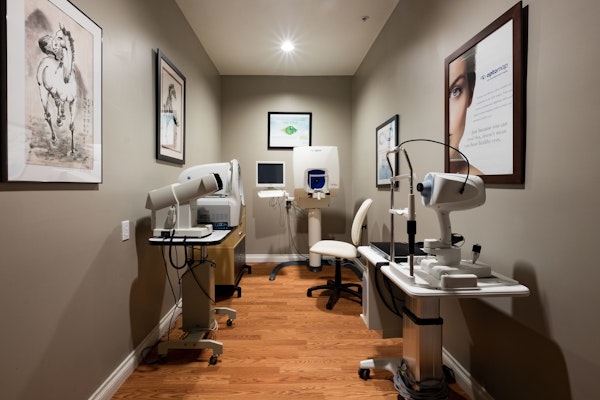What to Do About Dry Eyes and Blurry Vision
 Springtime brings bothersome pollen that can make our eyes feel itchy and irritated. The result is blurry vision that makes daily activities more challenging. But, if you struggle with dry eyes and blurry vision all year long, then you may be dealing with a different condition altogether, like chronic dry eye.
Springtime brings bothersome pollen that can make our eyes feel itchy and irritated. The result is blurry vision that makes daily activities more challenging. But, if you struggle with dry eyes and blurry vision all year long, then you may be dealing with a different condition altogether, like chronic dry eye.
At GW Eye Associates, we take great pride in helping La Jolla, CA, residents regain comfort and good vision. With offices in the Greater San Diego and Carmel Valley areas, we offer life-changing chronic dry eye treatments that help you see your world with comfort and clarity.
Are dry, blurry eyes taking the focus out of your life? Here, our team will discuss the common causes of dry eyes and blurry vision, what to do about it, and how we can help.
What Causes Dry Eyes and Blurry Vision?
Dry eye syndrome is the primary cause of eye irritation and blurry vision. Patients can develop dry eye syndrome for several reasons, including:
- Too much time in front of a phone, computer, or TV screen
- Dry or old contact lenses
- Decreased tear production
- Vitamin deficiencies
- An autoimmune disorder
- Medications
For some patients, dry eye syndrome is a minor inconvenience that isn't cause for concern. Those patients may find dry eye relief at home with simple over-the-counter remedies and lifestyle changes.
What Can I Do About Dry Eye Syndrome?
Increased hydration means increased tear production. Therefore, drinking enough water is your first defense against combatting pesky dry eye symptoms. Experts recommend drinking approximately two liters of water a day to prevent dry eye syndrome.
Infrequently replacing contact lenses can cause them to feel gritty and dry on the eye. This is because protein, calcium, and grime build up on contact lenses over time, which can aggravate dry eye symptoms. Replacing contact lenses frequently keeps your eyes looking and feeling their best.
If increasing your hydration and frequently replacing your contacts doesn’t help, then try getting store-bought eye drops and a multivitamin. Store-bought eye drops help lubricate parched eyes, and a multivitamin can replenish depleted vitamins that worsen dry eye symptoms.
In addition to over-the-counter remedies, patients can try making simple lifestyle changes to improve dry eye syndrome. For example, restricting screen time and practicing mindfulness can greatly improve dry eyes and blurry vision.
When Is It Time to See an Optometrist?
Patients should contact our eye doctors immediately if they experience worsening symptoms, including:
- Difficulty seeing things up close or far away
- Discomfort while wearing contact lenses
- Eye fatigue
- Frequent headaches or eye aches
- Nausea, vomiting, or a fever accompanied by eye pain or blurry vision
- Uncontrollable leaking or a yellow-green discharge coming from the eye
- Eyes that alternate between extremely dry and excessively teary
Chronic dry eye that disrupts your daily life warrants a visit with one of our caring optometrists. They can get to the root of the issue, offer prescription eye drops, and explore other comfort solutions to improve your condition.
Talk to Our Optometrists About Dry Eye Treatment
With a range of conservative and aggressive treatment options, the team at GW Eye Associates can treat chronic dry eye. So, don’t live with dry, blurry eyes for a second longer - schedule your consultation today.
New and existing patients can contact us online here, or call us at (858) 454-4699.







